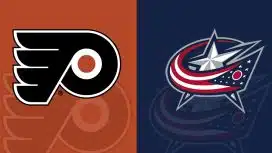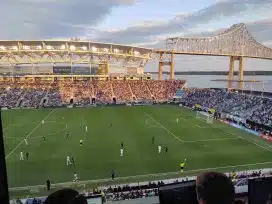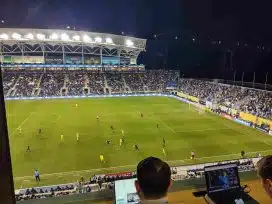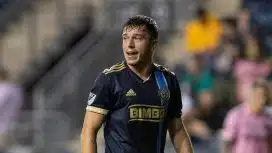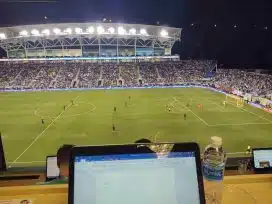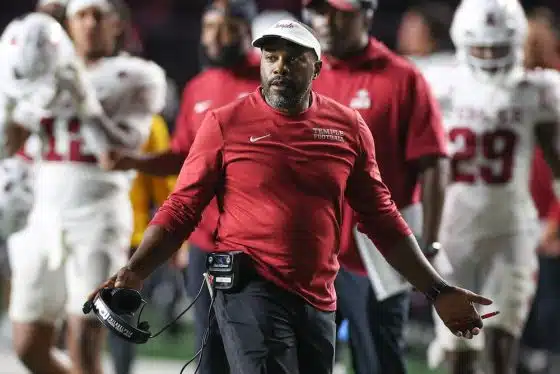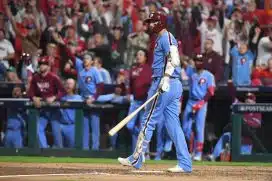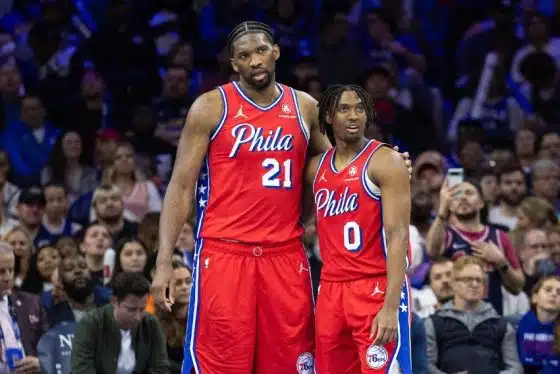Uncategorized
Giroux, Voracek must rise on road for Flyers
The Philadelphia Flyers went through a rough few weeks.
The day after their regular season concluded with a victory over the New York Islanders, the team founder and chairman Ed Snider passed away.
In their first game of the series against the Washington Capitals, Sean Couturier was injured by a clean Alex Ovechkin hit.
In Game 2, Steve Mason gave up what is among the worst goals in Stanley Cup Playoff history.
The less said about Game 3, the better. From both the players’ on-ice performance to the off-ice behavior of the fans, it was a disaster.
Then during Game 4, Scott Laughton was carried off on a stretcher and taken to the hospital for precautionary measures.
Despite all that turmoil, the Flyers are still alive, albeit barely. Down 3-1 in this playoff series against the President's Trophy winning Capitals, the Orange and Black still have a madman’s chance of getting back in the fight. Whispers of a comeback are starting, but none of that can happen without a spark, particularly from the players expected to get the job done on a near-nightly basis.
In the "impossible, improbable" comeback against the Boston Bruins in the 2010 Eastern Conference Semifinals, the Flyers had that spark in Simon Gagne’s return for Game 4. Gagne went on to score the game-winning goal in the fourth contest, two goals in Game 5, and the series-winning goal in Game 7. To go along with Gagne’s return, then-captain Mike Richards, now a Capital, had one goal and four assists while Danny Briere put together three goals and six points to help complete the resurgence.
Now, there’s some difference between 2016 and 2010. Back in 2010, the Flyers were playing a team they were equal to in terms of skill and experience. However, they were getting healthier too. This year’s team is playing an easily superior opponent and have lost two forwards to injury. The 2010 Flyers were in "win now" mode. This squad is still in a rebuilding process. In fact, even getting this far is pure gravy for the Orange and Black.
Yet, if the Flyers have any shot of putting together an even more impossible, improbable comeback, their best players must rise like the 2010 team’s elite did. Claude Giroux, Wayne Simmonds and Brayden Schenn have no goals and a combined five assists among them. Jake Voracek and Michael Raffl have a goal each. Now, this isn’t to say that all of those players are performing poorly, but in order to have any shot on Friday and potentially on Sunday in a Game 6 in Philadelphia and, even less likely, in the potential Game 7 on Wednesday, those players must finish. They have to be the Flyers best players, on the ice and on the scoreboard.
It all starts with Giroux, who during the regular season, had more points on the road than at home despite playing two fewer away games. Giroux had double the even-strength and power-play goals as well as shooting percentage on the road than at Wells Fargo Center.
Giroux’s usual partner-in-crime, Voracek, is another capable trail-worn traveler. Though his goal scoring was limited in the regular season, he tallied seven more times on the road than he did in Philadelphia. And in this series, he’s the only player to have scored on Braden Holtby in Washington.
For a team that went 18-17-6 away from Philadelphia and has dropped both contests at the Verizon Center, the Flyers need Giroux and Voracek to be the road warriors they’ve been all season in Game 5.
If Giroux and Voracek can get going, they can only hope the players that performed better on home ice, like Simmonds, Schenn and Raffl, will follow. And that’s the only way Philadelphia has any hope at all. Stealing a game at home with two goals by defensemen and a 31-save effort by Michal Neuvirth is good enough for one tilt, but isn’t the recipe for continuing the series for any prolonged measure.
So while this series is all gravy for the team, Giroux and Voracek can pour a little more on the plate if they can cook up some offense like only they can on the road.
Dan Heaning is a contributing writer for Flyerdelphia. Follow him on Twitter @Dan_Heaning.













